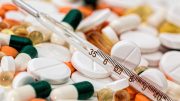For successful deployment of United States health care reform a huge increase in the policy competition and literacy of all the health care specialists (pharmacists, health care providers, physicians etc.) is needed. But it’s not enough because all the professionals also need to work with each other in order to provide patients with the highest quality healthcare for the lowest cost.
Unlike others, University of California San Francisco School of Pharmacy doesn’t wait for health care reform legislation and use the implementation of the Medicare Part D as the topic for their lectures for almost three years. They designed and developed first of its kind research project to show the value of the teamwork of different kinds of specialists and the most important – the value of health policy literacy.
The name of the UCSF program is Partners in D. Health specialists like primary care physicians, nurse practitioners and nurses, assistants and students were on the special lectures, where student pharmacists from pharmacy schools in California shared their comprehensive knowledge of Medicare Part D.
Marilyn Stebbins (clinical pharmacist; co-leader of the Partners in D program) from UCSF School of Pharmacy said when Part D was a welcome health policy change they considered it to be a successful application which was with a lack of critics from pharmacy specialists, who understood it correctly, could manage it and help patients with Medicare and physicians and other health care providers to navigate it in light of how pharmaceuticals prescribed. Stebbins also added that they began teaching their seniors colleagues in nursing and medicine directly, in order to study them something they needed to know. “Our main goal is to spread that knowledge base to health care specialists, not to keep it to ourselves,” Stebbins said.
Unique program
Students have given 44 Medicare Part D lectures as of March 2010. A number of attendees were about 1,200 in different states across the U.S. The main topics of the lectures were: policy implications, the structure of the program, and what the health care providers should know in order to convince their patients to get medications and prescription drug plans, which would be the most optimal for them. One of the lecturers also added, that they also brought a lot of real clinical experiences through their lectures.
Helene Levens Lipton, Ph.D., University of California San Francisco School of Pharmacy health policy expert, co-leader of the program, states, that on a review of the literature, the Partners in D lecture program is unique. In her words, they haven’t met that kind of innovation and such kind of lectures anywhere else. Drug experts and student pharmacists teaching healthcare providers and health professional students about how they and their patients could get the most of the federal drug policy. The faculty could do it by itself, but instead, they put students in front of the classroom. Now the dynamic of the process is significant.
Almost 1,000 attendees of the lectures filled out surveys. About 60% of attendees told, that they had not had any prior instructions on Medicare Part D federal program.
“I would say that a huge amount of physicians didn’t have any idea even about the basic outline of Part D and so, didn’t have any ability to guide and assist their patients,” said director of the internal medicine clinic at the UCSF-affiliated San Francisco General Hospital and trauma center Alice Chen, MD.
The importance of Medicare Part D training
Lipton said that training of health professional students on health policy (Medicare Part D) issues is more important than ever before, with new, more complex reform imminent. They had the successful experience with doing that with Medicare Part D as the initial health policy and focus on it. As hundreds of thousands of uninsured were getting access to the health care services, the focus on them and their benefits became even more important. Also, she added, that in order to save doctors time, to produce and provide customers with the better care, doctors need to collaborate with pharmacists. Medical experts have to collaborate together in new ways, because of baby boomers who are joining Medicare program, the shortage of primary care doctors and health care reform.
She also states that they have to look for collaborations, and often talk about the importance of the education of different kinds of health professionals. In her words, their Part D lectures show good results and deliver the goods.
The increasing demand and positive responses from people, who took part in the program, as well as survey results, which will be shown in April 2010 at the SGIM, are a good measure of the program’s success for Lipton.
University of California San Francisco student pharmacists are going to present to the faculty member and medicine resident of internal medicine at Cornell, New York universities and Memorial Sloan Kettering medical centers in May of this year. As for now, they have given lectures at UCSF, Stanford, and Southern California universities, at Beth Israel Deaconnes Massachusetts and General Hospitals (the last two hospitals are teaching affiliates of Harvard University).
More about Partners in D
Partners in D co-investigator, assistant clinical professor at the UCSF, Cindy Lai, MD, pointed out all the pharmacists are well-trained in medications effects, their interactions, and side effects, but primary care physicians usually don’t pay enough attention to those factors. So with the help of the program, they are trying to tell the health specialists, that it’s okay to call a pharmacist and get all the information needed because pharmacy specialists are highly trained and competent. They can take care of the patients and they are very important in clinical medicine.
The Partners in D program is led by Lipton and Stebbins, this education peer-to-peer program is part of the multi-part grant and funded by $3.7 million grant from The Amgen Foundation. This grant was started in 2006 and has been extended for 3.5 years.
During the California Pharmacists Association meeting in February 2010, Stebbins and Lipton received Jane Boggess Advancement of Pharmacy Practice Award from the Pharmacy Foundation Of California, for the work in improving public health.





Be the first to comment on "Medicare Part D Program From Pharmacy School Reaches New Territory In Health Policy Education"